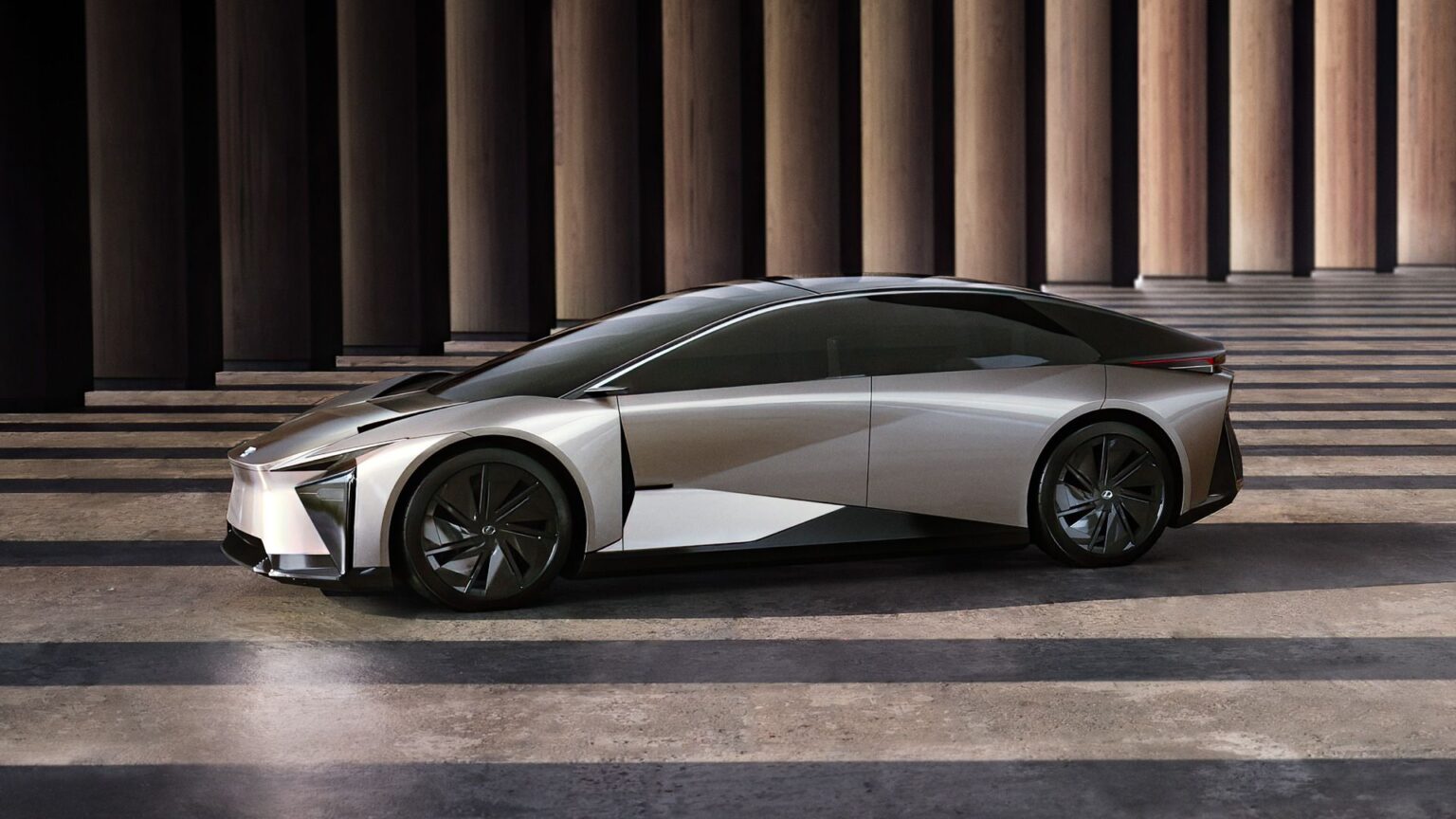Last year at the Japan Mobility Show (née Tokyo Motor Show), Lexus unveiled the LF-ZC concept EV, meant to preview a vehicle slated for production in 2026. Standing for “Lexus Future Zero-emission Catalyst,” the concept featured a sleek body with low center of gravity, a steering yoke and steer-by-wire technology, an A.I. “Butler,” and a range of 621 miles (based on China’s test cycle). Now, however, we are learning via NHK that Toyota will delay this next-generation EV until mid-2027, in order to give the automaker time to further develop its new gigacasting production technology.
Toyota’s Gigacasting Plans
Rather than building a car from many smaller components, Toyota’s gigacasting method involves creating the car in three large sections, then fastening those together, and allowing the battery to be added as a structurally independent component. Toyota has demonstrated its gigacasting process using high-pressure molds and molten aluminum.
Toyota plans to use gigacasting to produce its next-generation EVs more quickly and cost-effectively. Gigacasting minimizes the number of parts and the complexity of the construction process. It also reduced costs in vehicle development and in factory investments, Toyota says.
Next-Generation EV Coming In 2027
Lexus previewed the now-delayed EV with the LF-ZC concept. It features a streamlined design that isn’t just attractive, but functionally efficient with a drag coefficient of just 0.2. Inside, its lounge-like interior and modern, minimalist design is punctuated by technology. The steering yoke is surrounded by screens, with a digital instrument cluster in front of the driver and a touchpad to the left that controls the drive selector. To the right is another touchscreen for the passenger to use. The LF-ZC also previewed a new operating system called Arena OS that is capable of learning and anticipating the driver’s needs. It also features an AI assistant called Butler that can be controlled through voice commands.
The LF-ZC looked compelling on the show floor in Tokyo, and was even more so when considering its impressive range, technology, and method of production. Here’s hoping Toyota’s gigacasting project remains on track to see the production version of the Lexus LF-ZC around the middle of 2027. Meanwhile, we can expect to see more hybrids, including PHEVs, from Toyota as the company expects increasing demand.
Read the full article here


